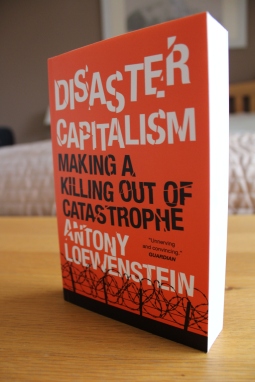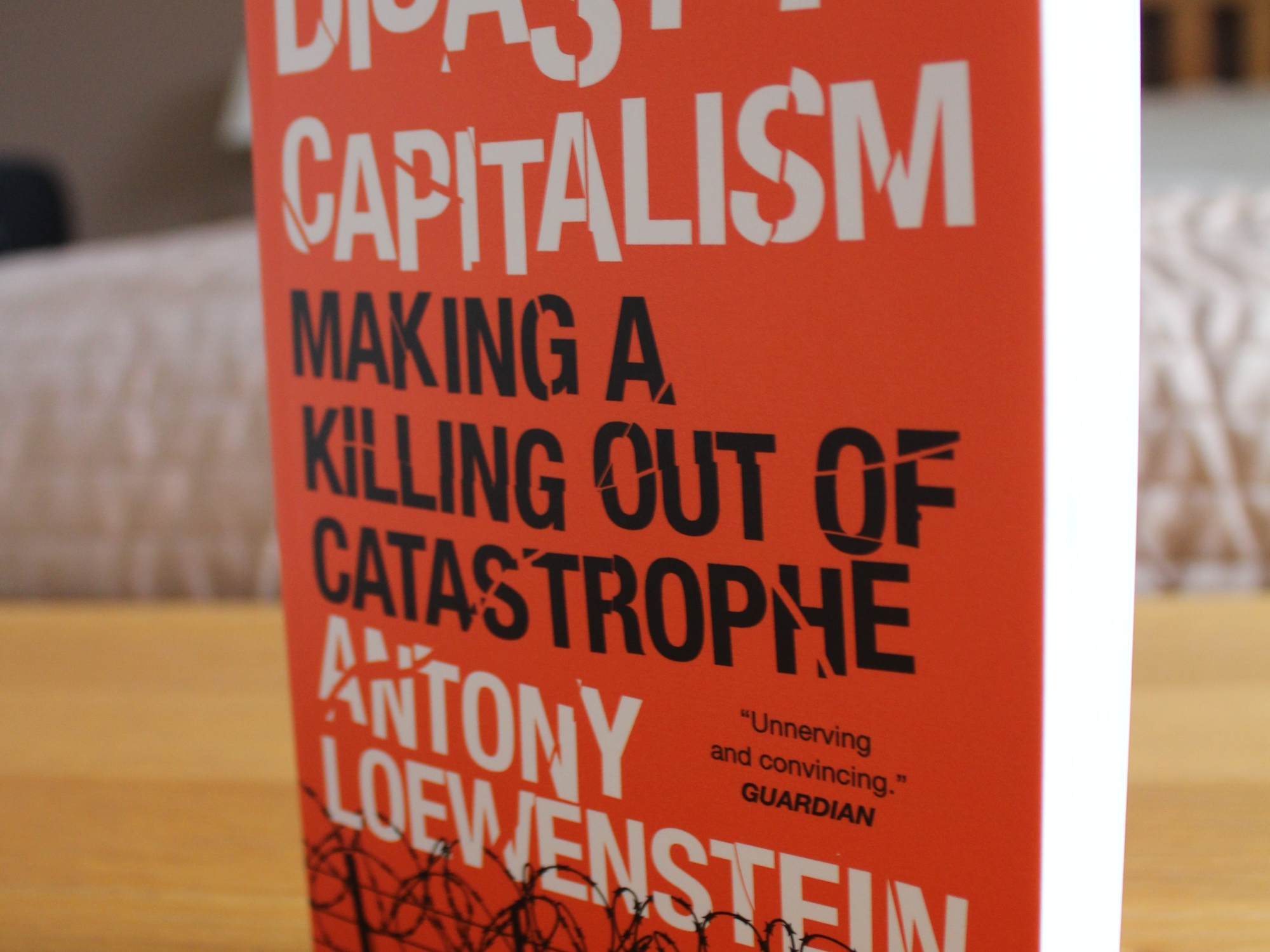Date finished: March 22nd 2017
Disaster Capitalism follows Australian journalist Antony Loewenstein as he explores the joint economic and human rights abuses of NGOs, ably helped by governments around the world: from the Private Military Companies pillaging Afghanistan in the aftermath of the War on Terror; to the triumvirate of the financial, refugee and political crises which colour every facet of Greek life; to the people of Haiti, still living in disease-ridden squalor thanks to a lack of real help after the 2010 earthquake that ravaged the country; to the marginalised people of Papua New Guinea fighting to keep miners from destroying their country a second time.
We are broadly aware that poorer countries are often exploited by richer countries and companies alike, but Loewenstein also shines much-need light upon the USA, UK and Australia, where we too often fail to see the strangulating influence of privatised industry upon public services and citizens.
 The work places an enormous emphasis on the corporate takeover of the immigration system, including private detention facilities in which migrants are imprisoned; a limbo land of human rights abuses and neglect. This is undoubtedly timely and incredibly relevant but Disaster Capitalism never really mentions that this is the main focus of the work. This omission may broaden its general appeal but seems to be at the expense of limiting its value as a piece of investigative journalism into the corporatisation of immigration and the refugee crisis. This isn’t to undermine the value of the book, but to question the way it has been presented: just as I wasn’t expecting it to focus on immigration, so people looking for a good book on immigration may overlook it because it fails to capitalise on its own premise. This leads to a conundrum – does one review it on its own merits or on what it tries and fails to be?
The work places an enormous emphasis on the corporate takeover of the immigration system, including private detention facilities in which migrants are imprisoned; a limbo land of human rights abuses and neglect. This is undoubtedly timely and incredibly relevant but Disaster Capitalism never really mentions that this is the main focus of the work. This omission may broaden its general appeal but seems to be at the expense of limiting its value as a piece of investigative journalism into the corporatisation of immigration and the refugee crisis. This isn’t to undermine the value of the book, but to question the way it has been presented: just as I wasn’t expecting it to focus on immigration, so people looking for a good book on immigration may overlook it because it fails to capitalise on its own premise. This leads to a conundrum – does one review it on its own merits or on what it tries and fails to be?
I’ll opt for the former and review it on its merits: while the chapters on Greece, Haiti and Papua New Guinea stand out as the most fascinating, the chapters on the western world seem more limited in scope. The USA, UK and Australia have very similar practices to one another in terms of their ham-fisted handling of the refugee crisis and so the book begins to feel like its retreading ground already covered.
Nevertheless, Disaster Capitalism is a valuable addition to the canon of literature on the ravages of neoliberalism, shining much-needed light on the ways in which corporations continue to dominate, repress and plunder the planet in the name of profit, particularly with regards to the current issues of immigration and the refugee crisis. Though by no means perfect, Loewenstein brings some important revelations to the table and works like this are more important than ever in an increasingly corporate world.
7/10
Related Reading/Watching
The Shock Doctrine – Naomi Klein: The book on disaster capitalism, a superlative exploration of the worldwide ravages of neoliberalism and shock and awe governance.
Private Island – James Meek: Explores the privatisation of British and European public services.
Poverty Inc. (2016) – A fantastic documentary on how corporations profit from poverty and disaster, with particular attention to Haiti and Africa.
